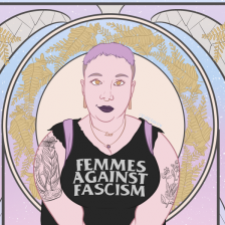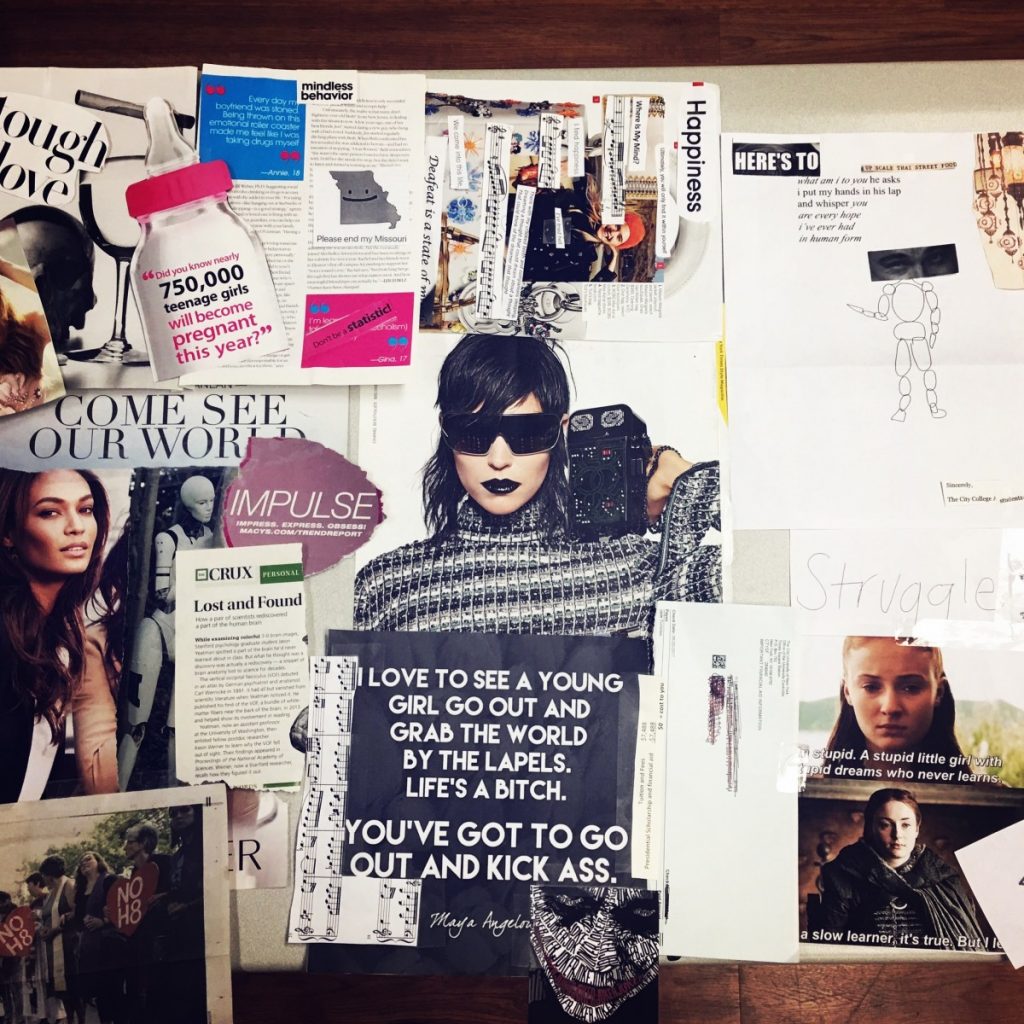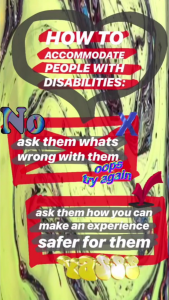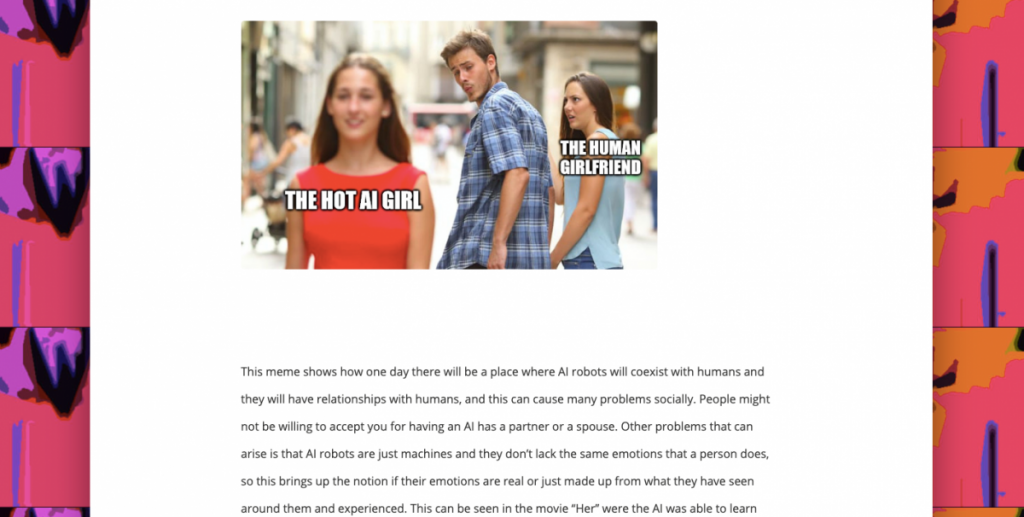Last Thursday, November 7, we met for our second Open Pedagogy event of the semester. Our theme for the evening was Access Pedagogy. Against the backdrop of austerity and persistent budget crises at CUNY, we considered how we could make ourselves accessible as teachers. We asked: To what extent are our classrooms accessible, and what can we do to center access and equity in both in-person and online teaching?
We began the evening by exploring how our day-to-day experiences in the classroom and with students continually challenge our assumptions about teaching and learning. One participant shared that, as an instructor, they assumed that students would contact them or come to office hours if something weren’t clear. Other participants nodded and laughed in agreement as this same instructor then explained that this was 1) false; 2) untrue of even their own behavior as a student. Many of us admitted that, when we were in college, we were often too shy, intimidated, or busy to go to our professors’ office hours ourselves. The implication? It’s actually our job as instructors to make sure we are being clear and to check-in regularly with our students!
More generally, our students continually and productively challenge our assumptions. At CUNY, many of our students balance careers, caretaking, and college. In many ways, they are expected to be superhuman. As instructors, we learn again and again that our most engaged and creative students may be frequently absent or late for class. We learn again and again that access to basic technology—including a computer and safe and stable internet connection—is not a given. Nor can we take for granted that our students will have had the time and resources to complete all of their coursework. This entails a need for some malleability and ingenuity on our part.
Fortunately, we can work to reduce barriers to student learning; we can work to improve access. At the event, we discussed softening the language in our syllabi, such that policies around punctuality, attendance, and late work submission are made somewhat flexible and always compassionate. We can provide students with laptops and other forms of accessible technology, including by using open and free software and open platforms (like the OpenLab!). We can help our students seek out resources and list these on our OpenLab course/project sites. Moreover, we can do all this while still teaching students the importance of advocating for themselves, and of making their own needs clear to their instructors.
Of course, not all of the problems we face in higher learning today have straightforward solutions. Despite our enthusiasm for open learning platforms like the OpenLab and, especially for Open Educational Resources (OERs), a participant reminded us that we must be careful to not simply replicate the textbook format. Working digitally gives students an opportunity to express themselves not just in formal essays, but in memes, gifs, and blogs. We should not shy away from multimedia, nor from opportunities to make students co-creators of a course. Moreover, while we can all strive to make ourselves more accessible as instructors, we also have to confront the harsh realities of the trauma, racism, and poverty many of our students face, as well as the high workloads and precarity many of our adjunct instructors live with.
Let’s continue the conversation! Please comment on this post with thoughts/ questions.








